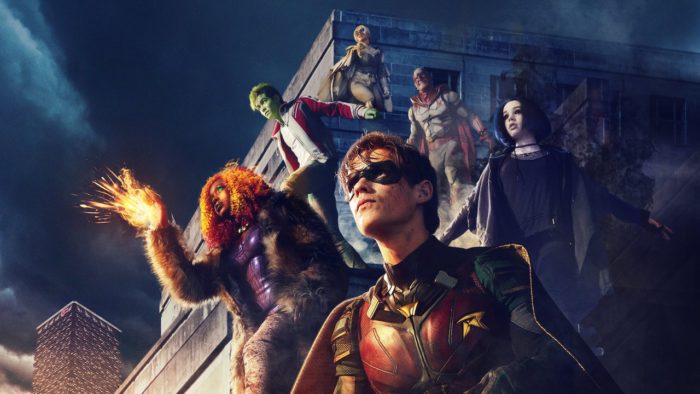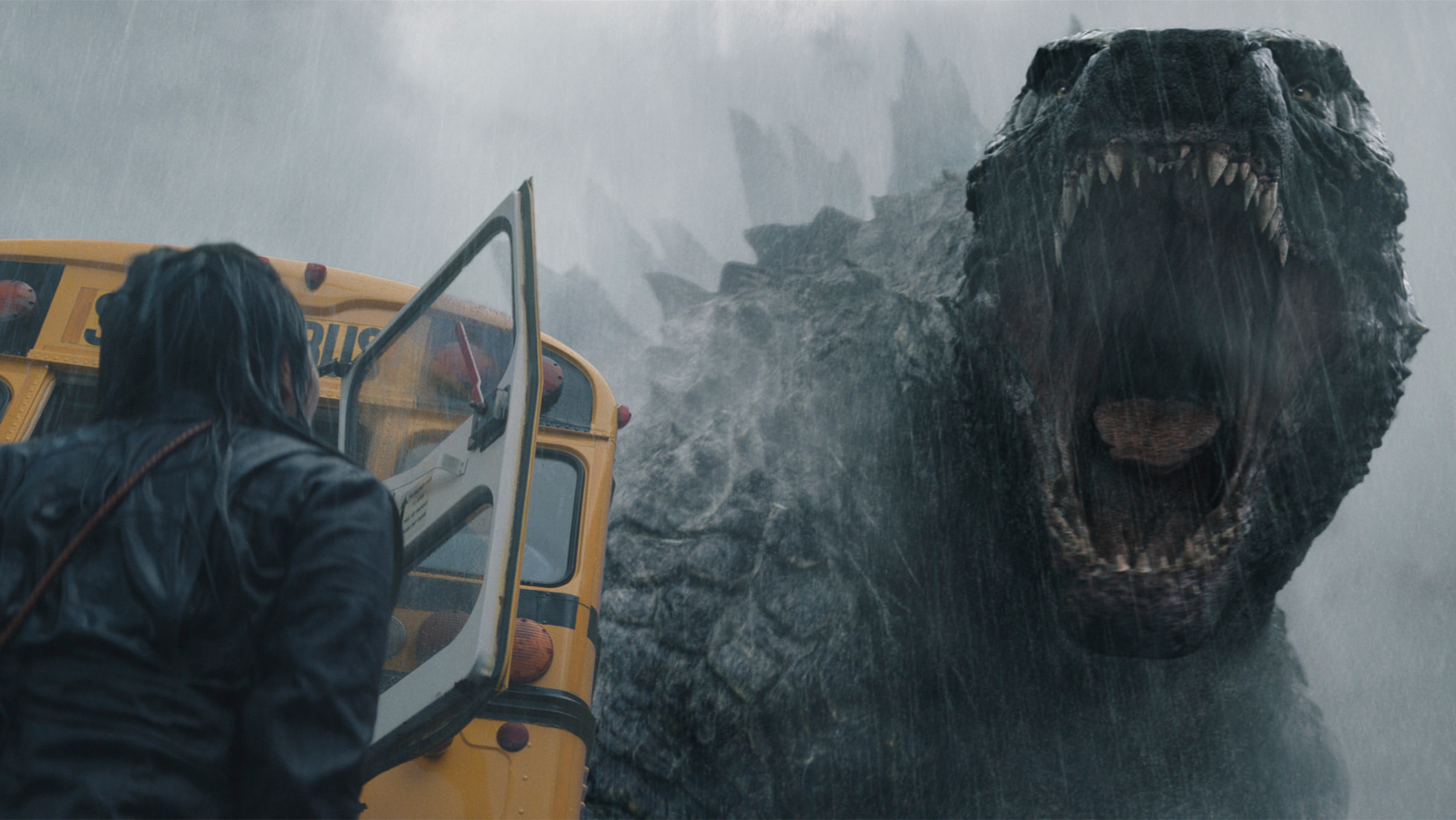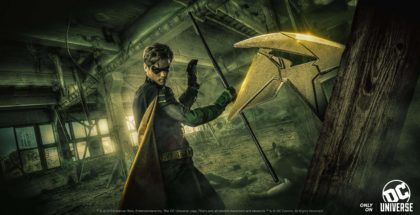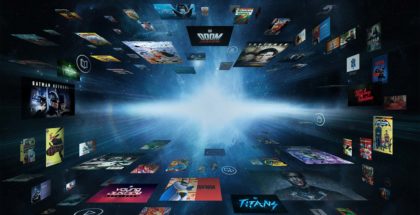Netflix UK TV review: Titans Season 2
Review Overview
Superhero action
8Superhero angst
7.5Superboy subplot
8.5Matthew Turner | On 23, Feb 2020
The first season of DC’s Titans successfully blended superhero action and dark humour, but it was undermined by the misguided inclusion of extreme, nasty violence and excessive swearing (read our review here). Happily, the second season has done a certain amount of course correction, toning down its more egregious excesses and becoming something a lot closer to the enjoyable superhero show it should have been in the first place.
The second season opens with what is essentially the delayed finale to the first season, with the team defeating Rachel’s (Teagan Croft) demon father Trigon (Seamus Dever), and Dick (Brenton Thwaites) establishing a headquarters at Titans Tower in San Francisco, after reconciling with Bruce Wayne (Iain Glen). Throughout the course of the second season, various combinations of Titans face off against new adversaries, including Deathstroke (Esai Morales), Doctor Light (Michael Mosley) and the sinister forces behind Cadmus Laboratories, lead by Lex Luthor’s head of security, Mercy Graves (Natalie Gumede, superb).
If the first season was about Dick bringing together a new team of Titans, the second season focuses on the shifting dynamics of that team as the new members – Rachel / Raven, Kory / Starfire (Anna Diop), Gar / Beast Boy (Ryan Potter) and Jason / Robin (Curran Walters) – interact with the old members – Hank / Hawk (Alan Ritchson), Dawn / Dove (Minka Kelly) and Donna / Wonder Girl (Connor Leslie). There’s a lot of to-ing and fro-ing as various Titans leave and come back again, but the Titans Tower location and the increased use of costumes go a long way towards making the whole thing feel much more like a proper superhero show this time round.
The second season adds a host of colourful new characters, including the aforementioned Deathstroke (a sword-wielding villain already used extensively in Arrow), Doctor Light (currently a villain on The Flash), Mercy Graves (previously a villain on Smallville) and Bruce Wayne (if you want proof that Titans is set in an alternate universe, look no further than the fact that their Bruce Wayne is blonde), as well as Deathstroke’s daughter Rose Wilson (Chelsea Zhang), Starfire’s sister Blackfire (Damaris Lewis) – with an arc that nicely leads up to Season 3 – and, best of all, Superboy (Joshua Orpin).
In fact, Superboy gets his own subplot, as well as an entire episode to himself, which is hugely entertaining and could easily stand as a pilot for a stand-alone Superboy show. A key part of Superboy’s appeal – aside from Orpin’s superb, Tom Welling-esque performance – is the fact that he’s accompanied by Krypto the Wonder Dog, played by a delightful, perfectly cast canine actor, who, on the evidence here, clearly deserves his own spin-off. Both the effects and the dog-wrangling on Krypto are exceptional, especially during the fight scenes, where he has his own unique fighting style. He’s also remarkably faithful to his comics incarnation, so kudos to the canine casting director.
If there’s a problem with the Superboy subplot, it’s only that Genevieve Angelson (as sympathetic Cadmus employee Eve Watson, who helps Superboy) disappears too abruptly from the story, suggesting that some of her scenes ended up on the cutting room floor. (On the plus side, it seems likely that she could return next season.)
Chronologically speaking, the season does a lot of jumping around, as it tries to establish the original Titans’ background with Deathstroke and the reasons the team broke up in the first place. While that might occasionally feel clunky, it does at least allow us to get to know the original team a little better, particularly Wonder Girl, who was limited to a guest appearance in the previous season.
Thematically, the season treads some familiar but effective ground, centring on guilt, loss, redemption, secrets and lies – in other words, a healthy dose of the sort of comics-appropriate angst that was a key feature of the source material. On the flipside of that, the show doubles down on the theme of the first season, specifically the fact that each of the Titans may be messed up, but they’re still a family at heart. To that end, several of the emotional connections between the team members are genuinely moving, heightened by impressively strong chemistry within the cast. (Minka Kelly is probably the MVP in this regard, generating touching connections with several different characters.)
Action-wise, although the extreme violence has been considerably toned down (no faces scraped against brick walls this time), the fight scenes remain a high point of the series. In particular, the introductions of new characters with new superpowers and weapons means that there are plenty of colourful, effects-heavy fighting styles available. Accordingly, the action sequences are genuinely thrilling, bolstered by some decent special effects work, although, that said, poor old Gar still hasn’t added any other animals to his shape-shifting repertoire.
In fairness, the show hasn’t completely renounced its more adult-oriented content, as there’s still a fair amount of entirely unnecessary swearing. However, efforts have clearly been made in that department, as it’s no longer as in-your-face as it was in Season 1 and it feels less overtly gratuitous. It’s still a baffling decision, though, given the show’s presence on Netflix in the UK and the likely crossover appeal to younger fans of the Teen Titans GO! cartoon.
Titans: Season 1 and 2 is available on Netflix UK, as part of an £9.99 monthly subscription.




















